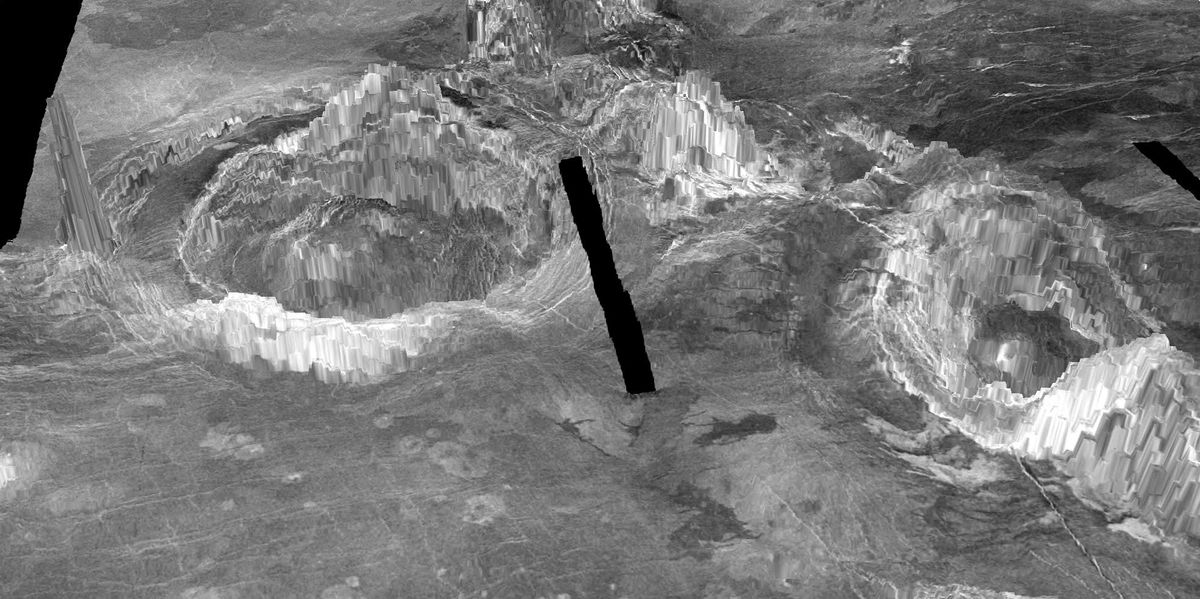Venus is a geologically active world nowadays, a brand new see suggests.
Researchers own identified three dozen functions on Venus that had been seemingly created by volcanism in the very most up-to-date previous, doubtlessly reshaping our knowing of the hellishly hot planet and its evolution.
“Here’s the main time we’re in a position to notify instruct structures and thunder, ‘Look, right here will not be an feeble volcano nonetheless one which is active nowadays — dormant, perhaps, nonetheless not dumb,'” see co-author Laurent Montési, a professor of geology at the University of Maryland, stated in a assertion. “This see a good deal changes the gape of Venus from a largely lazy planet to one whose inside is level-headed churning and can feed many active volcanoes.”
Connected: Pictures of Venus, the mysterious planet subsequent door
Scientists own lengthy identified that Venus remained active lengthy after fellow rocky planets Mercury and Mars lost their geological mojo. The 2d rock from the solar sports far fewer craters than those two worlds, a count that is in step with a world resurfacing occasion some 500 million to 700 million years up to now. (Our portray voltaic system’s other inside rocky planet, Earth, remains extremely active nowadays, in actual fact.)
But not too lengthy up to now, proof has been constructing that Venus’ volcanic exercise persevered unprecedented later into the planet’s historical previous — even perhaps by to the present day. And the brand new see bolsters that level of view.
The researchers, led by geophysicist Anna Gülcher of ETH Zürich in Switzerland, used pc simulations to model in unprecedented detail the formation and evolution of Venus’ ring-fashioned volcanic structures, that are known as coronae.
“The improved level of realism in these items over old be taught makes it that you are going to be in a position to take into consideration to name quite loads of levels in corona evolution and account for diagnostic geological functions present most effective at right now active coronae,” Montési stated.
The team of workers then used this files to hunt for young coronae in imagery of the Venusian surface captured by spacecraft similar to NASA’s Magellan probe, which orbited the planet from 1990 to 1994.
“We are in a position to train that not not as a lot as 37 coronae own been very not too lengthy up to now active,” Montési stated.
Venus’ coronae are generated by plumes of molten rock rising from the mantle up by the crust, a direction of identical to the one which formed the Hawaiian Islands right here on Earth. (Most of our planet’s volcanism, nonetheless, occurs along the boundaries of tectonic plates, which fashionable Venus doesn’t seem to occupy.)
The 37 young coronae are clustered in proper a few Venusian regions, Gülcher and her colleagues found. These areas “can also just support as attention-grabbing targets for detailed investigation by future spacecraft missions,” the researchers wrote in the brand new see, which used to be published online nowadays (July 20) in the journal Nature Geoscience.
Mike Wall is the author of “Out There” (Mammoth Central Publishing, 2018; illustrated by Karl Tate), a e-book about the look for alien lifestyles. Prepare him on Twitter @michaeldwall. Prepare us on Twitter @Spacedotcom or Fb.





Leave a comment
Sign in to post your comment or sign-up if you don't have any account.